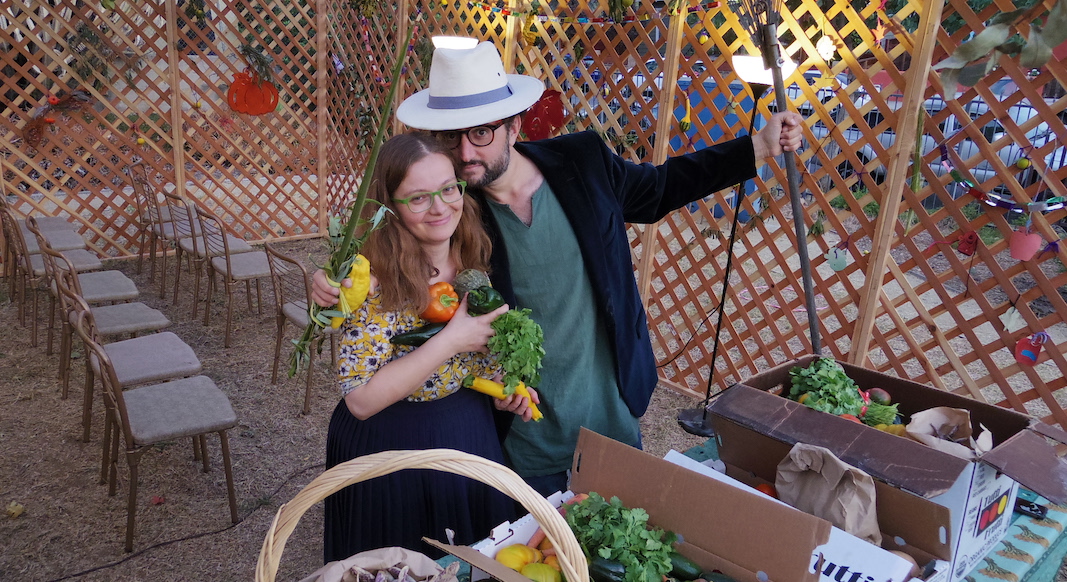
Practical information
CoPious Box
Reservations here
Pick up every Thursday, between 5 and 7 pm at Temple Beth Israel
5711 Monte Vista St, Los Angeles
Information here
We thought the gleaning – harvest of agricultural products remaining once the harvest made – obsolete … But it was before the awakening eco-responsible. A Franco-American couple, Noémie Taylor and Jason Rosner, decided to showcase this medieval practice. Since May, they offer CoPious, baskets of vegetables and seasonal fruits, local and organic, to recover once a week.
"We were looking for organic, but without packaging; and we were disappointed by our previous attempts at AMAP (Association for the Maintenance of a Farming Agriculture- CSA, or Community Supported Agriculture in the United States) whose vegetables were not particularly tasty and the high prices ($ 45 per basket) ", says Noémie Taylor, a journalist for The cross and International mail in Los Angeles. The concept is then born of a chance meeting. Cycling in Highland Park (East of the city), the couple's eyes are attracted by a huge garden and baskets of fruits and vegetables sold at low prices.
Conquered by the tomatoes, they engage the conversation with the owner, who calls himself "Stormie Art". This Native American defines herself as a gleaner, picking up unsold organic premises on the city's finest Farmer's Market (Santa Monica, Beverly Hills). "She was having trouble making herself known, and I had the idea to start an AMAP for a long time", says Noémie Taylor, who was seduced by gleaning, "A practice that reduces food waste". From this meeting follows a partnership. Jason Rosner, who is a rabbi, finds a place to offer the boxes ($ 25 for 10 to 12 pounds and $ 36 for 18 to 22 pounds), Beth Israel Temple, the Highland Park Synagogue. Each week, they prepare between ten and twenty (to order online, without subscription), which conquer more and more regulars.
Beyond the fight against waste, CoPious aspires to introduce consumers to the seasonality of agriculture and its diversity. Rare fruits such as jujubes, dragon tongue bush beans (red dots), the tomatillos where the lemon cucumbers (round cucumber) are found in the baskets. "It allows us to think about our consumption habits, to reconnect with the earth"argues Noémie Taylor, who encourages composting uneaten vegetables or drying peppers to turn them into harissa – tips from the CoPious newsletter.
Their penchant for ecology is not new. But it has intensified since Noémie Taylor moved to the United States, where there is a lot of waste. "You only have to see the number of ketchup bags that end up in the trash", argues the journalist who converted her husband, getting rid of plastic in particular in their daily lives and manufactures their laundry. "Especially in Los Angeles, there are no stores with bulk products; or they are very expensive. " Professionally, her commitment is also whole, the correspondent multiplying the subjects on the environment for French media. "I want to dig up the topics on the food chain."
Part of the funds raised by the sale of baskets is donated to ecological associations or allows to animate the community "Co-Pious" with conferences on the "zero-waste".
Practical information
CoPious Box
Reservations here
Pick up every Thursday, between 5 and 7 pm at Temple Beth Israel
5711 Monte Vista St, Los Angeles
Information here





